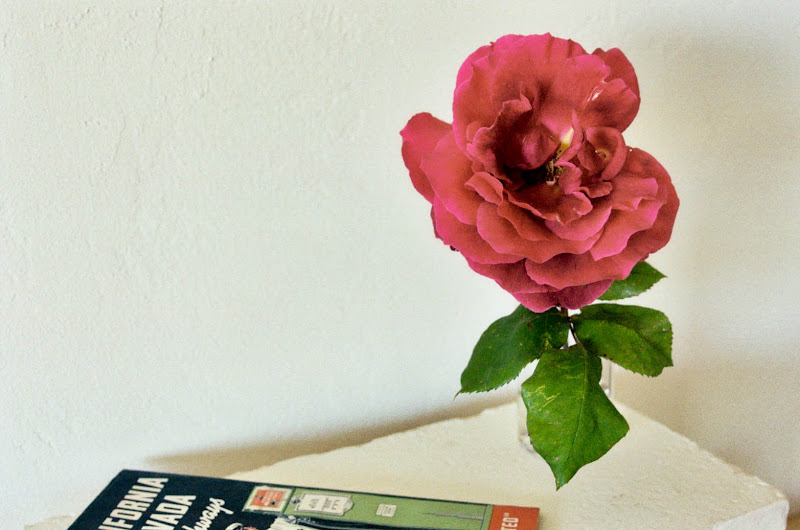Kurt Vonnegut. Long Walk To Forever.
They had grown up next door to each other, on the fringe of a city, near fields and woods and orchards, within sight of a lovely bell tower that belonged to a school for the blind.
Now they were twenty, had not seen each other for nearly a year. There had always been playful, comfortable warmth between them, but never any talk of love.
His name was Newt. Her name was Catharine. In the early afternoon, Newt knocked on Catharine's front door.
Catharine came to the door. She was carrying a fat, glossy magazine she had been reading.
The magazine was devoted entirely to brides. "Newt!" she said. She was surprised to see him.
"Could you come for a walk?" he said. He was a shy person, even with Catharine. He
covered his shyness by speaking absently as though what really concerned him were far
away--as though he were a secret agent pausing briefly on a mission between beautiful, distant,
and sinister points. This manner of speaking had always been Newt's style, even in matters that
concerned him desperately.
"A walk?" said Catharine.
"One foot in front of the other," said Newt, "through leaves, over bridges---"
"I had no idea you were in town," she said.
"Just this minute got in," he said.
"Still in the Army, I see," she said.
"Seven months more to go," he said. He was a private first class in the Artillery. His uniform
was rumpled. His shoes were dusty. He needed a shave. He held out his hand for the magazine.
"Let's see the pretty book," he said.
She gave it to him. "I'm getting married, Newt," she said.
"I know," he said. "Let's go for a walk."
"I'm awfully busy, Newt," she said. "The wedding is only a week away."
"If we go for a walk," he said, "it will make you rosy. It will make you a rosy bride." He
turned the pages of the magazine. "A rosy bride like her--like her--like her," he said, showing
her rosy brides.
Catharine turned rosy, thinking about rosy brides.
"That will be my present to Henry Stewart Chasens," said Newt. "By taking you for a walk,
I'll be giving him a rosy bride."
"You know his name?" she said.
"Mother wrote," he said. "From Pittsburgh?"
"Yes," she said. "You'd like him."
"Maybe," he said.
"Can--can you come to the wedding, Newt?" she said.
"That I doubt," he said.
"Your furlough isn't for long enough?" she said.
"Furlough?" said Newt. He was studying a two page ad for flat silver. "I'm not on furlough,"
he said.
"Oh?" she said.
"I'm what they call A.W.O.L.," said Newt.
"Oh, Newt! You're not!" she said.
"Sure I am," he said, still looking at the magazine.
"Why, Newt?" she said.
"I had to find out what your silver pattern is," he said. He read names of silver patterns from
the magazine. Albemarle? Heather?" he said. "Legend? Rambler Rose?" He looked up, smiled. "I
plan to give you and your husband a spoon," he said.
"Newt, Newt--tell me really," she said.
"I want to go for a walk," he said.
She wrung her hands in sisterly anguish. "Oh, Newt--you're fooling me about being
A.W.O.L.," she said.
Newt imitated a police siren softly, and raised his eyebrows.
"Where--where from?"
"Fort Bragg," he said.
"North Carolina?" she said.
"That's right," he said. "Near Fayetteville--where Scarlet O'Hara went to school."
"How did you get here, Newt?" she said.
He raised his thumb, jerked it in a hitchhike gesture. "Two days," he said.
"Does your mother know?" she said.
"I didn't come to see my mother," he told her.
"Who did you come to see?" she said.
"You," he said.
"Why me?" she said.
"Because I love you," he said. "Now can we take a walk?" he said. "One foot in front of the
other--through leaves, over bridges--"
* * *























